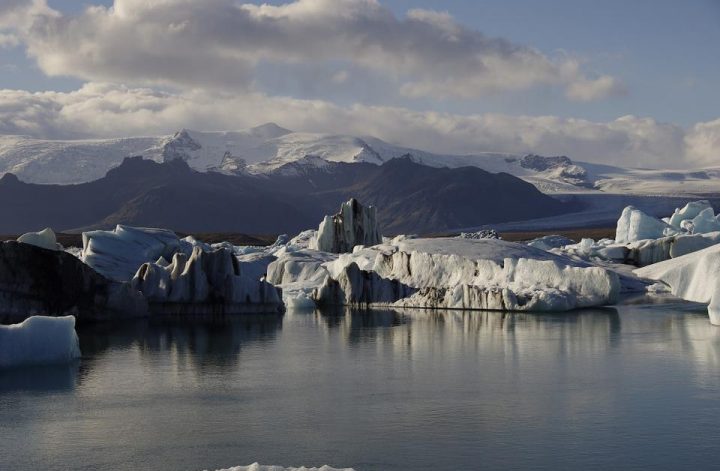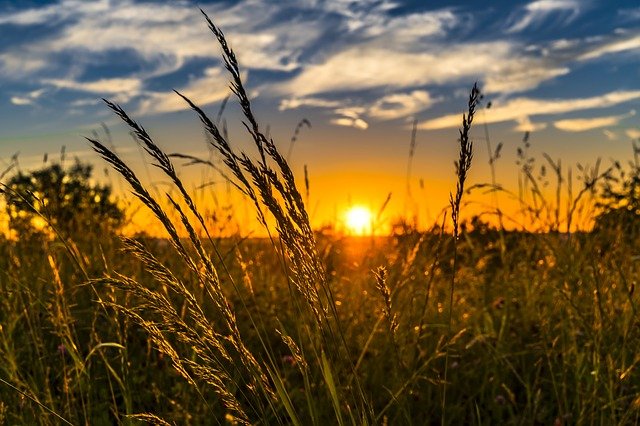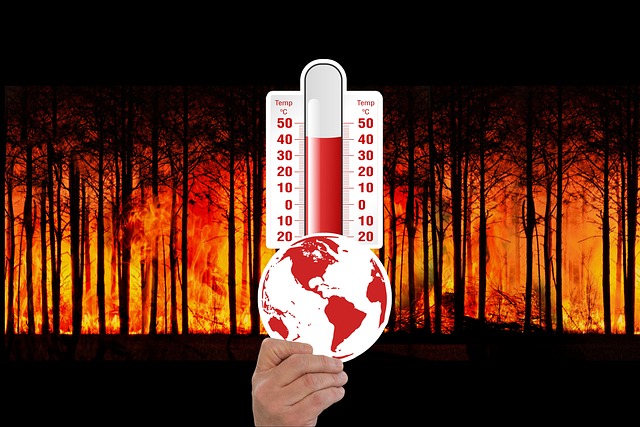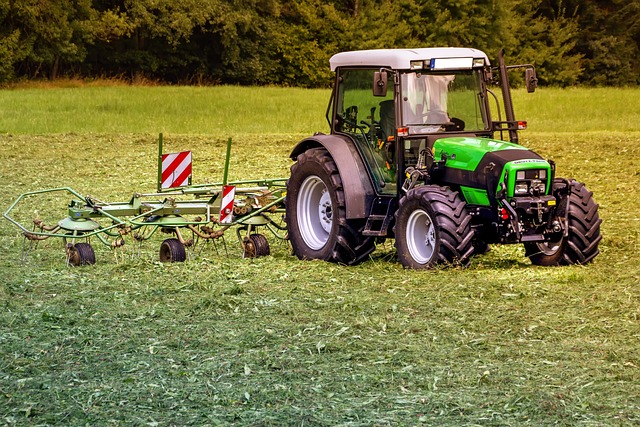INTRODUCTION
Glaciers are massive quantities of ice that move downward slowly. Wherever snow accumulates faster than it melts, a glacier forms. When melting outweighs accumulation, it retreats—that is, its terminal edge, the end of the glacier tongue, terminates at progressively higher heights. Since around 1850, the majority of the world’s mountain (alpine) glaciers have been receding. Alpine glaciers have lately increased their retreat, while massive ice-sheet glaciers along the coastlines of Greenland and the West Antarctic Peninsula have hastened their flow to the sea.
The majority of incidents of rapid glacier retreat are most likely the outcome of human-caused global climate change. Many glaciers throughout the world have been quickly melting since the early 1900s. This phenomenon is caused by human actions. Glaciers throughout the world can be hundreds to thousands of years old and give a scientific record of how climate has altered over time. Their research provides crucial information regarding the extent to which the world is quickly warming.
Also check out: Climate Change and Himalayan Glacier Hazard
CAUSES OF GLACIAL RETREAT AND GLACIER MELTING
-
Use of Fossil Fuels
The combustion of fossil fuels has led to the accumulation of greenhouse gases in the environment, which influence the warming trend by trapping heat in the atmosphere. As temperatures rise, more glaciers melt and retreat, revealing the soil underneath.
-
Climate Change
According to statistics, glacier loss will reach an all-time high in the future. The temperature rises caused by global warming cause glaciers to melt quicker. According to studies, human-caused global warming is the primary driver of glacier retreat. To know more about Climate Change, please read our article Climate change and its Causes and Effects.
-
The Sun’s Radiation
Glacier melting and retreating are affected by a number of factors, the most significant of which is the amount of solar energy that strikes the ice. Increased radiation causes glaciers to decrease by increasing melting rates.
-
The Glacial Till
Glacial till is an unsorted mass of material picked up by flowing glaciers that can comprise everything from large boulders to silt. Boulders insulate the ice, while the vulnerable ice around it melts. Dirt cones, which are thin layers of soil or silt produced over an elevated area of a glacier and generally in the shape of a cone, are generated by the smaller components.
-
Drilling for Oil and Gas
Methane, the major ingredient of natural gas, is also emitted during the oil and gas extraction process. Furthermore, the gas is more harmful to the environment than carbon dioxide, trapping heat more effectively and hastening global warming. You might be interested in reading: Fossil Fuels are Killing Us – According to Latest Harvard Study
6. Soot Deposits
Soot, ash and carbon black deposits reduce reflectivity of glaciers causing more absorption of heat and therefore quicker glacial melting and retreat. For more detailed info, kindly read: Black Soot and Ash Deposits on Glaciers – Causes and Impacts and Blackening Glaciers of World -Carbon Black Deposition Impacts.
EFFECTS OF GLACIAL RETREAT AND GLACIER MELTING
-
Electricity Outage
Many locations throughout the world rely solely on the continually flowing water from melting glaciers to generate power. The production of power will be halted if the flow of water is reduced or stopped. The contemporary world cannot function without electricity; therefore, people will resort to alternative energy sources, some of which may pollute the environment and contribute to global warming.
-
Rising Sea Levels and Coastal Flooding
The most significant consequence of these glaciers melting and retreating is the rise in sea level. Since the 1960s, the sea level has risen by 2.7 cm, and the world’s glaciers still retain enough ice to increase the ocean by another half meter, threatening many coastal communities.
Also read: Global Warming – Causes, Effects, and Solutions
-
The Demise of Ocean-Based Industries
Furthermore, the disruption of these currents and jet streams is changing the ocean as a whole, with implications such as the collapse of fishing enterprises.
-
Freshwater Depletion
Another factor to consider is the depletion of fresh water. The less ice there is, the less water is available for human consumption, whether for drinking, hydroelectric generation, or agriculture. For more information, read: Climate Change Is Increasing Water Scarcity Around The World
-
Coral Reefs Will Vanish
Coral reefs require sunlight to survive through the process of photosynthesis. When water levels rise owing to glaciers melting or retreating, enough sunlight will not reach the corals. For more information about it, read: Coral Reef Destruction – Causes, Effects, and Solutions. Also check out: What Is Coral Gardening And Can It Help Save Coral Reefs?
6. GLOF Events
Glacial Lake Outburst Floods are directly caused due to glacier melting. These floods can wreck havoc down-stream and cause a lot of damage. For more information, read: Glacial Lake Outburst Floods in Pakistan- Causes and Effects
You might also be interested in: Third Pole Is Melting – Himalaya-HinduKush-Karakoram Glacier
SOLUTIONS FOR GLACIAL RETREAT AND GLACIER MELTING
-
Educate Yourself and Others Around You
The extensive usage of fossil fuels raises the level of thermal energy in the environment. Excessive use of coal and oil not only depletes these finite resources but also has an annual impact on the man-made atmosphere. The sooner we become aware of it, the better our chances of teaching others. As a result, it will be simpler to adjust the climate and minimize glacier melting. Don’t forget to educate others around you.
-
Be Concerned About Global Warming
Glaciers play an important role in mitigating global warming by functioning as enormous mirrors, reflecting sunlight from the Earth’s surface back into the atmosphere and controlling the planet’s temperature. Runoff from glacial melting creates rivers on which people all around the world rely. Check out: Ways To Reduce Global Warming and Stop Earth from Heating Up
-
Application of Modern Technologies
Researchers have an influence on glacier melting. However, research and development are essential for preventing glaciers and ice caps from melting. According to a paper published in the journal The Cryosphere, we can prevent floods caused by sea-level rise by using geoengineering to prevent ice sheets from melting.
You may like: 15 New Technologies and Innovations for improving our Environment
-
Alternative Energy Sources
Alternative energy sources provide answers to the problem of global warming. Solar panels are made up of solar cells, which capture solar heat and transform it into electricity. For more info: What Are Renewable Energy Sources? – Types of Green Energy
-
Individual Solutions
Make as few trips as feasible. Many cities have strong public transit systems. To get to your location, you can carpool, ride your bike, walk, or jog. Take shorter showers, turn off the water when brushing your teeth, switch off lights when not in use, hang laundry outside to dry, and disconnect gadgets when not in use to save energy at home. These seemingly insignificant actions have a significant impact when done on a wide scale, and they will go a long way toward lowering your carbon footprint and helping the environment.
Have a look at: Green Tech: Using CO2 From Air To Produce Useful Products
CONCLUSION
Briefly, Glaciers operate as water reservoirs that hold water throughout summer. Throughout the dry months, glacier melt adds water to the environment, producing perennial stream habitat and a water source for plants and animals. Cold discharge from glaciers impacts downstream water temperatures as well. Many aquatic species require low water temperatures to live in mountainous regions. We can prevent glacial retreat and melt by stopping our activities.
You might want to check out: What the Earth’s Environment Might Look Like After 50 Years
I hope you all liked this post! Please comment below if you have any suggestions, comments, or feedback! We at #envpk love hearing from our readers! Thanks!





2 Comments
This is outstanding, getting information from this article is so good and easy too.
Thank you so much Summaira, we are glad you found this article useful!